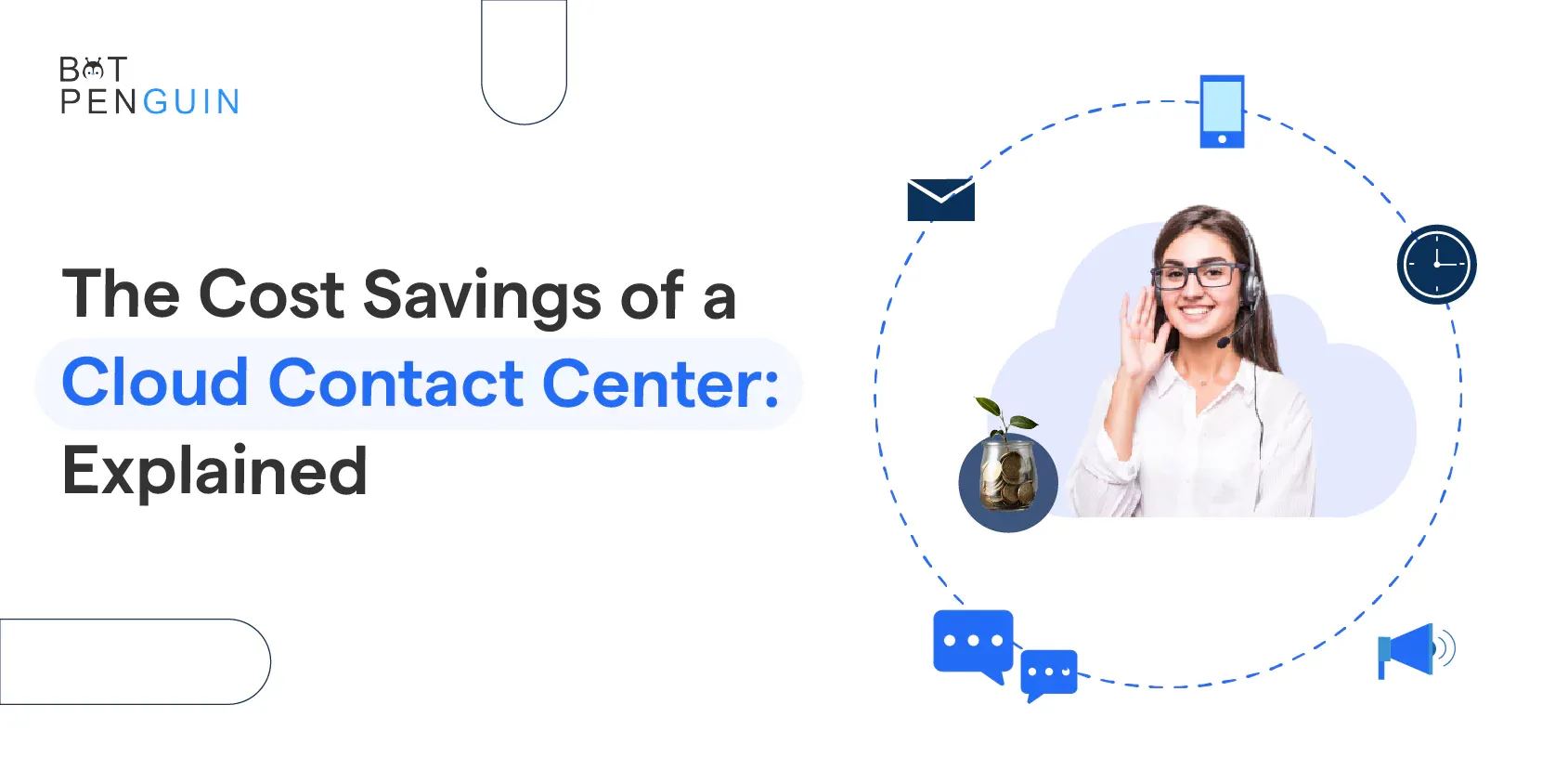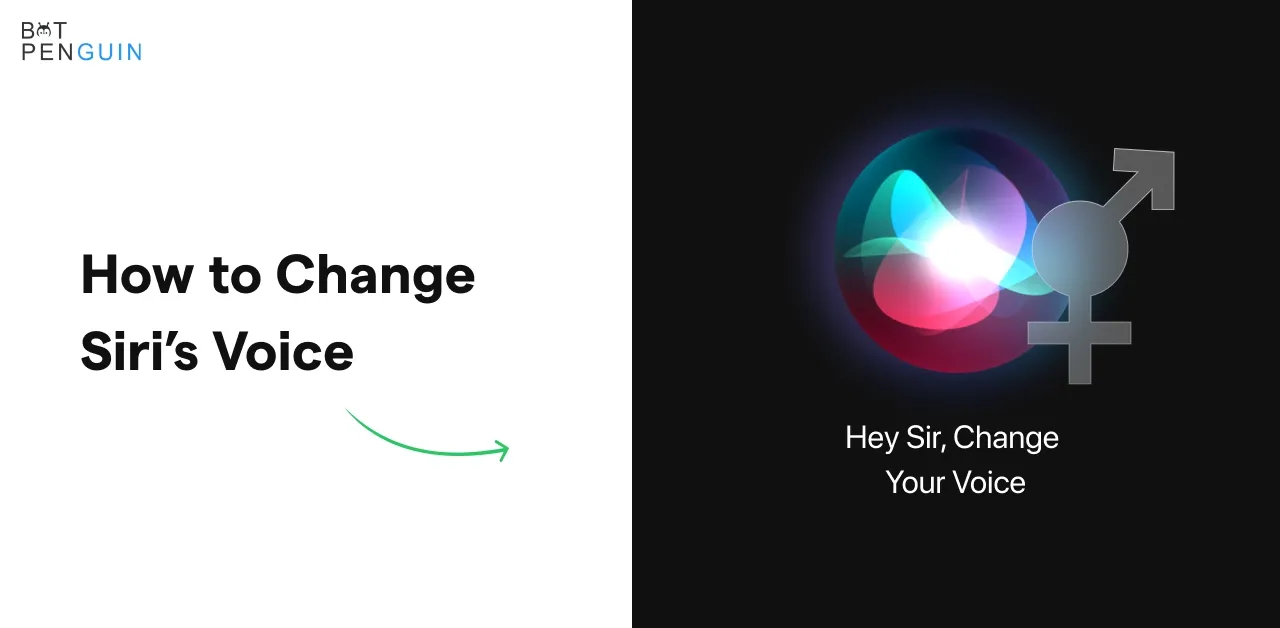Running a contact center can be a costly and complex endeavor.
You need to invest in infrastructure, equipment, software, and staff to provide quality service to your customers.
But what if there was a way to reduce your expenses and simplify your operations without compromising on performance?
That’s where cloud contact center solutions come in. Cloud contact centers are hosted on the internet, rather than on your premises.
This means you don’t have to worry about installing, maintaining, or upgrading hardware and software. You can access your contact center from anywhere, anytime, and scale it up or down as needed.
According to a report by Accenture, moving to a cloud contact center can help you save up to 35% of your costs, while also improving customer satisfaction and loyalty.
In this blog post, we will explain how cloud contact centers work, what are the key features and benefits, and how you can choose the best cloud contact center solution for your business.
What is a Cloud Contact Center?
A cloud contact center is a modern approach to customer service that leverages cloud-based technologies.
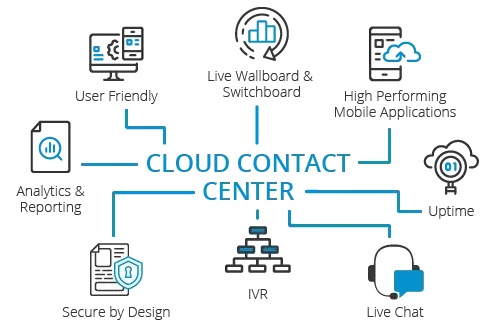
It moves your contact center infrastructure and operations to the cloud, eliminating the need for bulky hardware and expensive maintenance.
With a cloud contact center, you all need an internet connection, and you're good to go! It offers automated call routing, omnichannel support, and seamless customer relationship management (CRM) systems integration.
Why Should Businesses Consider Cloud Contact Centers?
Now that we understand a cloud contact center let's explore why businesses should consider switching.
Scalability and Flexibility
Cloud contact centers offer scalability and flexibility that traditional on-premise centers simply cannot.
Businesses can easily adjust their resources to match demand levels, helping them manage peak times without investing in excess infrastructure.
Improved Customer Experience
Cloud contact centers are equipped with advanced features to ensure superior customer experience.
From personalized interactions to fast response times, businesses can use these features to boost customer satisfaction and drive customer loyalty.
Cost-Effective Solution
By eliminating the need for expensive hardware installations and maintenance, cloud contact centers provide a more cost-effective solution.
Businesses can benefit from pay-as-you-go pricing models, where they only pay for the resources they use.
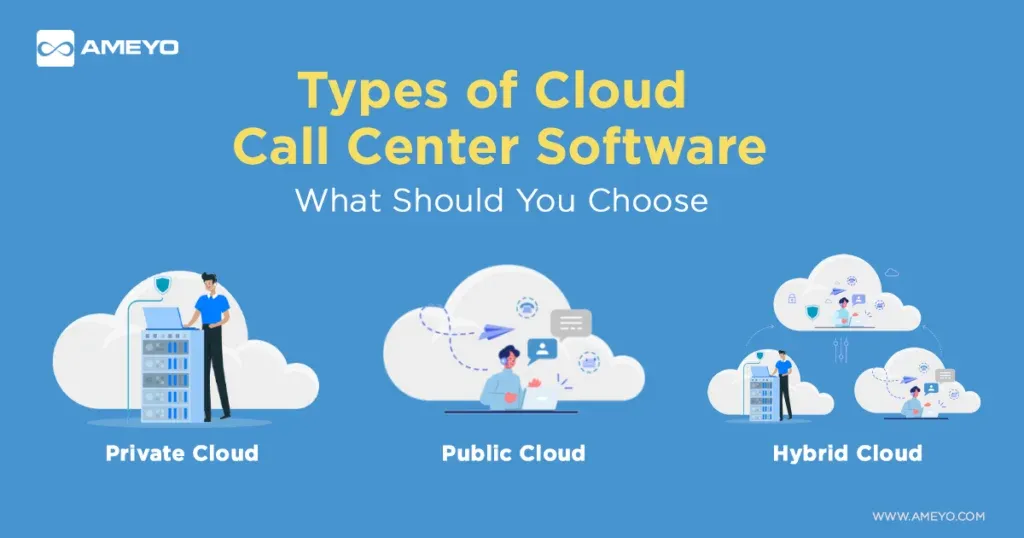
Enhanced Agent Productivity
Cloud contact centers empower agents with tools that boost productivity.
Features such as automatic call distribution, interactive voice responses, and integration with CRM systems allow agents to streamline their tasks and focus on enhancing customer interactions.
Easy Access to Latest Technologies
Implementing a cloud contact center means businesses can easily access and integrate the latest technologies like AI and chatbots, enhancing their capabilities and staying ahead of the competition.
Insights and Analytics
With their robust reporting and analytics capabilities, cloud contact centers provide valuable insights into customer behaviors and interactions.
These insights can help businesses improve their customer service strategy and make informed business decisions.
How Cloud Contact Centers Save Costs?
Many cost-cutting advantages provided by cloud contact center features can greatly influence your bottom line. Let's examine how these savings function in more detail.
In this section, we'll delve deeper into how cloud contact centers can lead to significant cost savings by reducing infrastructure expenses, flexible pricing, decreased maintenance costs, optimized workforce management, energy efficiency, and virtualization benefits.
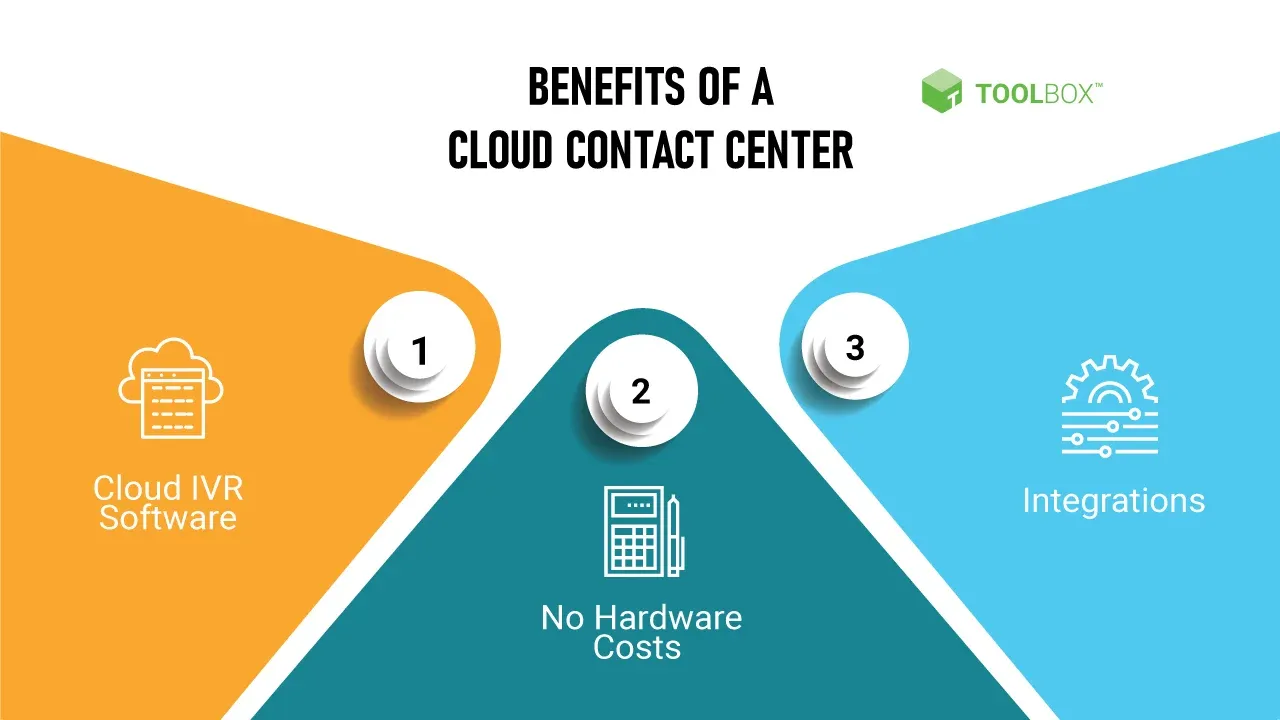
Low Infrastructure Investment
One of the key advantages of cloud contact centers is the minimal infrastructure investment required.
Traditional call centers often require businesses to make significant upfront investments in purchasing and installing expensive hardware systems.
Cloud contact centers, on the other hand, operate entirely over the internet, eliminating the need for such substantial investments.
This vastly reduces both the initial expenditure required to set up the call center and later costs associated with hardware upgrades or replacements.
Pay-As-You-Go Pricing
Cloud contact centers operate on a flexible pricing model, also known as pay-as-you-go. Instead of locking into an expensive fixed contract, businesses only pay for the services and resources they use.
This allows them to scale up or down according to their specific needs, ensuring cost efficiency. In times of low demand, businesses can decrease their service usage, reducing costs.
During high demand periods, services can be scaled up to ensure customer needs are met, promoting revenue growth without worrying about cost spikes.
Reduced Maintenance Costs
Maintenance costs represent a significant part of a business's expenses with traditional call centers. From system upgrades to hardware maintenance, these costs can quickly add up.
However, with cloud contact centers, the service provider handles all the maintenance and updates.
This means businesses can enjoy the latest features and technologies without bearing the maintenance cost, giving them more freedom to focus on core business operations.
Workforce Optimization
With features such as intelligent call routing, workforce management, and skills-based agent assignments, cloud contact centers enable businesses to optimize their workforce.
These features ensure that agents are utilized efficiently, reducing idle time, and increasing productivity.
This effective workforce management not only improves customer experience but can also lead to significant labor cost reductions.
Improved Energy Efficiency
By relocating the bulk of their hardware to the cloud, businesses can also achieve energy savings. Traditional on-premise call centers require significant power to run their server rooms and keep them cool.
However, by using cloud services, power consumption is substantially reduced, leading to lower energy bills and a reduced carbon footprint, pushing businesses towards more sustainable operations.
Benefits of Virtualization
Cloud contact centers also leverage virtualization, a feature that allows pooling of resources that can be dynamically allocated as per the needs of the business.
This means that system usage is optimized, and resource waste is minimized. By efficiently utilizing resources, businesses can make significant cost savings in the long run.
Suggested Reading-
10 Reasons to Switch to a Cloud Contact Center
Choosing the Right Cloud Contact Center Provider
Not all cloud contact center providers are created equal. When selecting a provider, consider the following factors to ensure a seamless and cost-effective transition:
Reliability and Security
Choose a supplier with robust security precautions, such as data encryption, secure connections, and adherence to industry standards. Check their track record for dependability and uptime as well.
Select a service that offers high availability since downtime may be expensive in terms of lost sales and client confidence.
Scalability and Customization
Consider your business's scalability needs and growth projections.
A flexible cloud contact center solution should allow you to easily add or remove agents, adjust resource allocations, and scale your operations according to demand.
Ensure the provider offers customizable solutions that align with your unique business requirements.
Integration Capabilities
Evaluate the provider's integration capabilities with your existing systems, such as CRM, help desk, or e-commerce platforms. Seamless integration eliminates data silos and enables a unified customer experience. Ask for case studies or references from businesses like yours to ensure the provider has a track record of successful integrations.
Evaluating Total Cost of Ownership (TCO)
When comparing providers, don't just focus on the initial setup costs. Consider the total cost of ownership (TCO), including ongoing maintenance and support expenses, licensing fees, and additional feature costs.
A provider with transparent pricing and a clear breakdown of costs will help you make an informed decision.
Conclusion
We've seen how cloud contact centers can cut costs, improve how we work, and make customers happier – all thanks to the cloud's smart technology.
By getting rid of pricey equipment and maintenance, businesses can focus on delivering top-notch customer service at a lower cost.
In this blog, we've shown how cloud contact centers get rid of costly hardware, meaning companies don't have to spend as much money upfront.
Plus, thanks to the cloud's flexibility, businesses can easily adjust their resources based on what they need, saving them even more money.
By combining cloud technology with the power of a user-friendly chatbot like BotPenguin, businesses can make their customer experience even better. BotPenguin's chatbots are available around the clock to answer customer questions and create personalized experiences.
But BotPenguin goes beyond just serving as a 24/7 customer assistant. It empowers marketing automation, allowing businesses to reach out to their customers in a way that feels personal and unique.
Another standout feature of BotPenguin is its exceptional integration capabilities. Whether your audience prefers to connect through WhatsApp, Facebook Messenger, or even live chat on your website, BotPenguin can effortlessly blend into your chosen platform.
Cloud contact centers work great on their own in delivering excellent customer service. But when you bring a chatbot like BotPenguin into the mix, you get the ultimate customer engagement combo.
With BotPenguin's smart chatbots working alongside a cloud contact center, businesses can offer unbeatable customer experiences that turn interest into loyalty.
So why not give it a try? Check out BotPenguin today and see how chatbots and cloud technology can work wonders for your business!
With BotPenguin, you have the power to craft chatbots for various platforms like WhatsApp, Website, Facebook Messenger, Telegram, WordPress, and Shopify. The best part? It's absolutely free!
Frequently Asked Questions (FAQs)
How can a cloud contact center save costs?
With a cloud contact center, businesses can eliminate the need for expensive hardware, reduce maintenance costs, and only pay for the services they use.
Are there any upfront costs involved in setting up a cloud contact center?
No, a cloud contact center eliminates the need for upfront costs typically associated with purchasing hardware and software. Businesses can get started with a pay-as-you-go model.
Can a cloud contact center help reduce operational expenses?
Yes, cloud contact centers offer economies of scale, reducing operational expenses by consolidating infrastructure, automating processes, and optimizing agent efficiency.
Are there any long-term cost benefits of a cloud contact center?
Absolutely! A cloud contact center offers scalability, allowing businesses to easily adjust resources based on demand. This flexibility avoids overprovisioning and minimizes unnecessary expenses.
Can a cloud contact center provide cost savings without compromising security?
Yes, cloud contact centers prioritize security measures, including data encryption and compliance certifications, to ensure that cost savings do not come at the expense of security.
